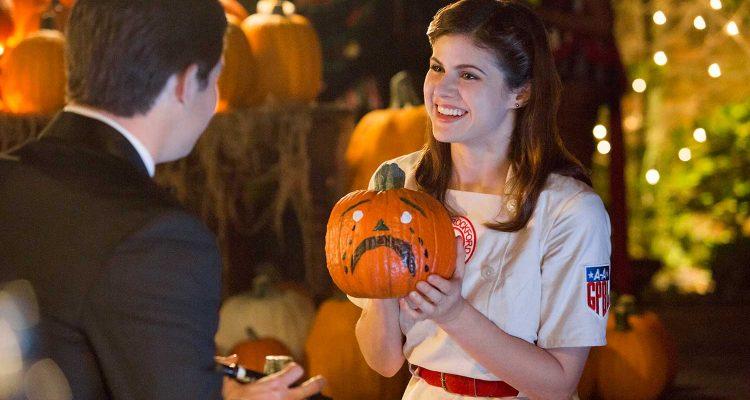Romantic comedies are underrated. They’re enjoyable, sweet, and usually female-led, but the “low art” genre is too-often dismissed. That said, there are plenty of bad romantic comedy apples out there spoiling the bunch. “When We First Met,” a new original film from Netflix, is one such film. Replacing enjoyable, sweet and female-led with grating, inane and chauvinistic, this movie puts the “suffer” in “insufferable.”
“When We First Met” centers on Noah Ashby (Adam DeVine), a goofy dreamer in love with his engaged friend Avery (Alexandra Daddario). Three years after he and Avery met, Noah is still beating himself up for having missed his shot to be with her. That regret comes to a head at the engagement party for Avery and her beau Ethan (Robbie Amell), who Avery met right after Noah. Drunken regrets and failed pep talks from Noah’s best friend Max (Andrew Bachelor) and Avery’s roommate Carrie (Shelley Hennig) find Noah holed up in a magical photo booth at a bar. The machine, a flirtatious centerpiece in the night he met Avery, sends Noah back in time and gives him the chance to recreate their meeting. Hijinks ensue as Noah gets the hang of his newfound cosmic gift, redoing the night several times before Max gives him some sage advice that leads to a “twist” you’ll probably guess within the first 15 minutes. It’s “Groundhog Day”-meets-“Big,” without the charm or originality. There is a man-child protagonist, though.
The biggest problem with “When We First Met” is not its cookie cutter visual style or lackluster cast. Those passable failures are ultimately overshadowed by the film’s god-awful narrative, which predicates itself on the assumption that women are pliable pawns who exist solely for men’s pleasure. An overdramatic montage plays when Avery hugs Noah rather than kissing him on the night they first meet (the horror!). Noah laments what “went wrong” to cause Avery to not fall in love with him. This happens immediately after Avery expresses how happy she is to have finally met a good male friend. Not only is “friendzoning” still a viable concept in The Year of Our Lord 2018, it’s now a feature-length film.
The idiocy doesn’t stop there. When Noah attempts to woo Avery by insulting her in Do-Over #2, she becomes immediately sexually attracted to him — you know, like a real woman would. There’s a “hilarious” gag built around Carrie and Avery up beating Noah because they think he’s a rapist. Women, am I right? Fending off the same gendered violence they’ve been raised to fear since they were toddlers? Bitches be crazy. The third-act twist necessitates a paradigm shift for Noah that almost causes him to see Avery as a full human being, but screenwriter John Whittington instead foists his sociopathic protagonist on another unwitting woman. Though the 2017-set protagonist of “When We First Met” jumps to and from 2014, this regressive rom-com would be better set in 1985.
Men don’t see women as people, water is wet, The Pope is Catholic. I shouldn’t be shocked enough to care, but this casual misogyny is especially annoying to see in a romantic comedy. At least when women lead bad romantic comedies, they’re not just there to be objectified. “When We First Met” takes something that women usually like and, in a fit of chauvinistic insecurity, tries to make it marketable to dudes. It’s the “bros’ gold” of movies.
Unlike director Ari Sandel’s previous films, “The DUFF” and Oscar-winning short “West Bank Story,” “When We First Met” offers no charm amidst its corniness. Adam DeVine delivers a performance reminiscent of every annoying popular kid from your high school. Alexandra Daddario is charismatic as Avery, but her character is ultimately too bland for it to really matter. The title font is Comic Sans’ ugly cousin. There’s a cheap shot dyke joke. The only redeemable thing about this train wreck is that its meager 96 minutes won’t have you checking your watch.
Neither romantic nor comedic, “When We First Met” is almost too vapid to be aggravating. After watching it, you might be tempted to hunt down a time-traveling photo booth of your own so that you can undo your mistake. Luckily, this movie is so shallow you probably won’t even remember it after you wake up tomorrow. [D-]

